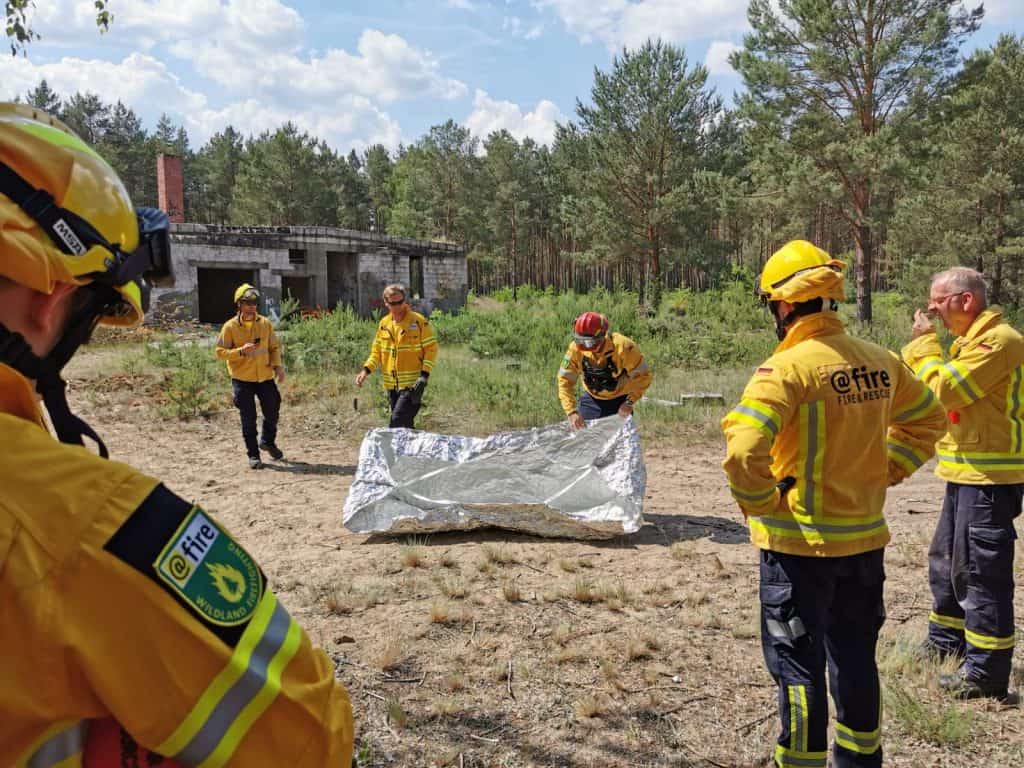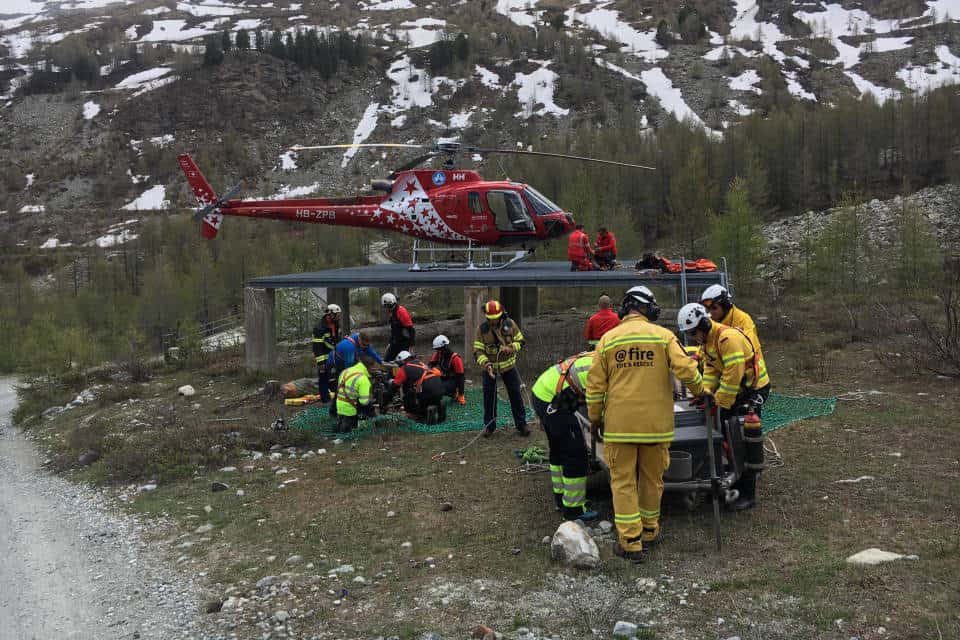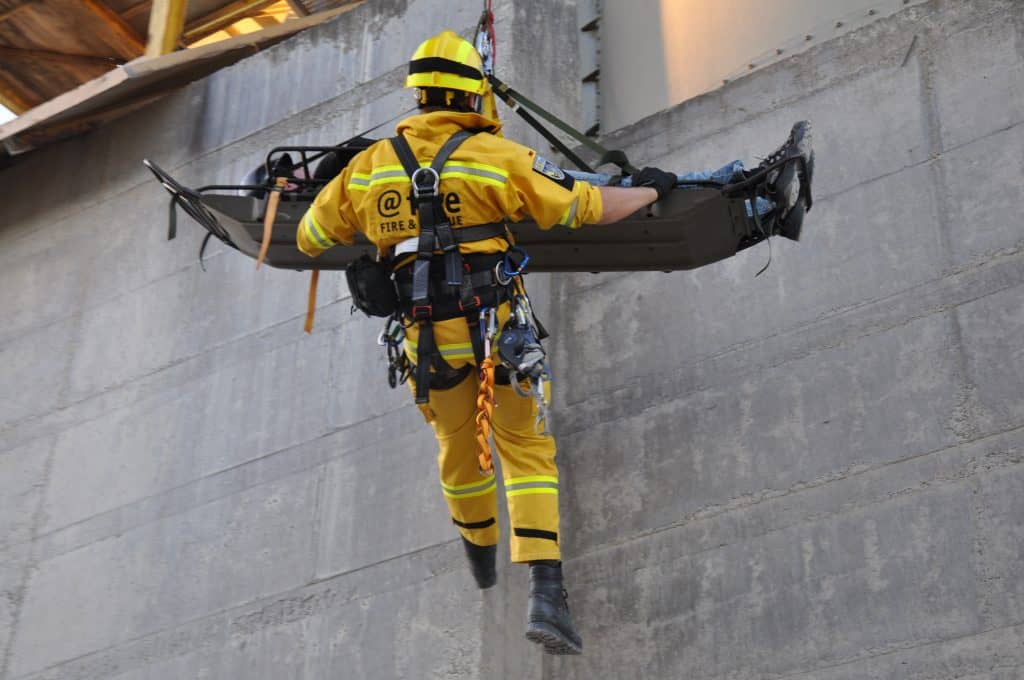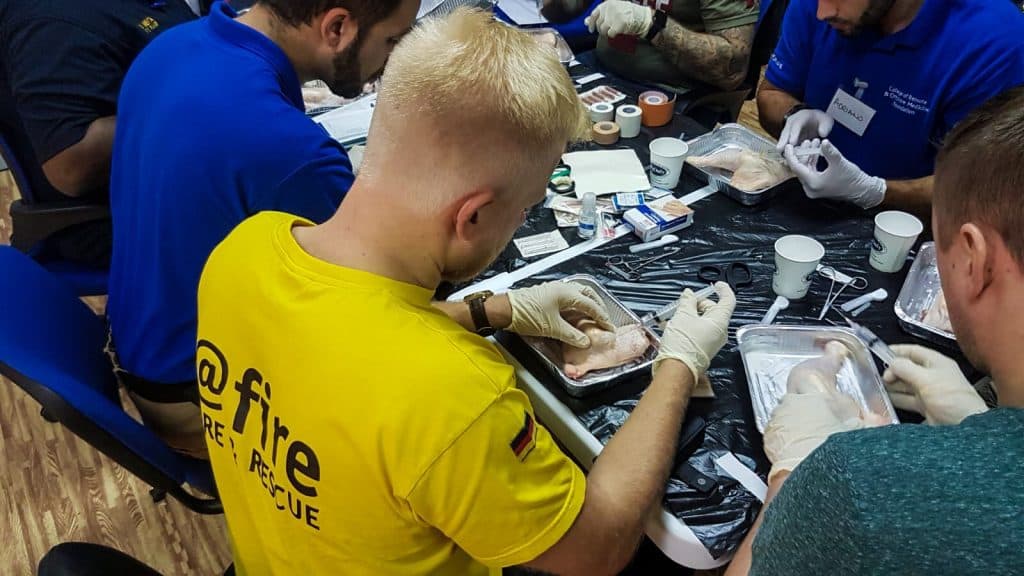The training at @fire takes place in stages and is specialised in the specialist areas.
The first basic course is the ID (International Deployment) course. The participants are introduced to the various activities of the association and gain important knowledge for their international work. Before starting, the participants complete the online course BSAFE of the United Nations, which provides information on the correct behaviour during missions for the UN and teaches the correct procedure in dangerous situations.
In the specialist areas of debris rescue and vegetation firefighting, there are basic training courses and specialised further training courses. In the basic training courses, participants learn all the basic skills that are required for operations. Numerous specialised courses are offered to learn even more advanced techniques.
For medically trained emergency personnel (e.g. emergency paramedics and paramedics) @fire offers a Medic course, which supplements the participants’ existing skills with special features, especially in rubble rescue. Finally, the care of people trapped for several days and the lack of a high-quality medical infrastructure in terms of clinics and rescue equipment require some special features.
Furthermore, there are several courses for leadership tasks in operations, staff work, for rescue dog handlers as well as for work with helicopters.
In addition to regular training abroad (for example in Great Britain), there are irregular international courses, for example on tropical and expedition medicine on the Mediterranean island of Malta or a course on medical care for earthquake victims in Miami, USA.

Training with the Fire Shelter 
Exercise with an Air Zermatt helicopter in the Alps

Abseiling an injured person 
Medical Education in Malta





